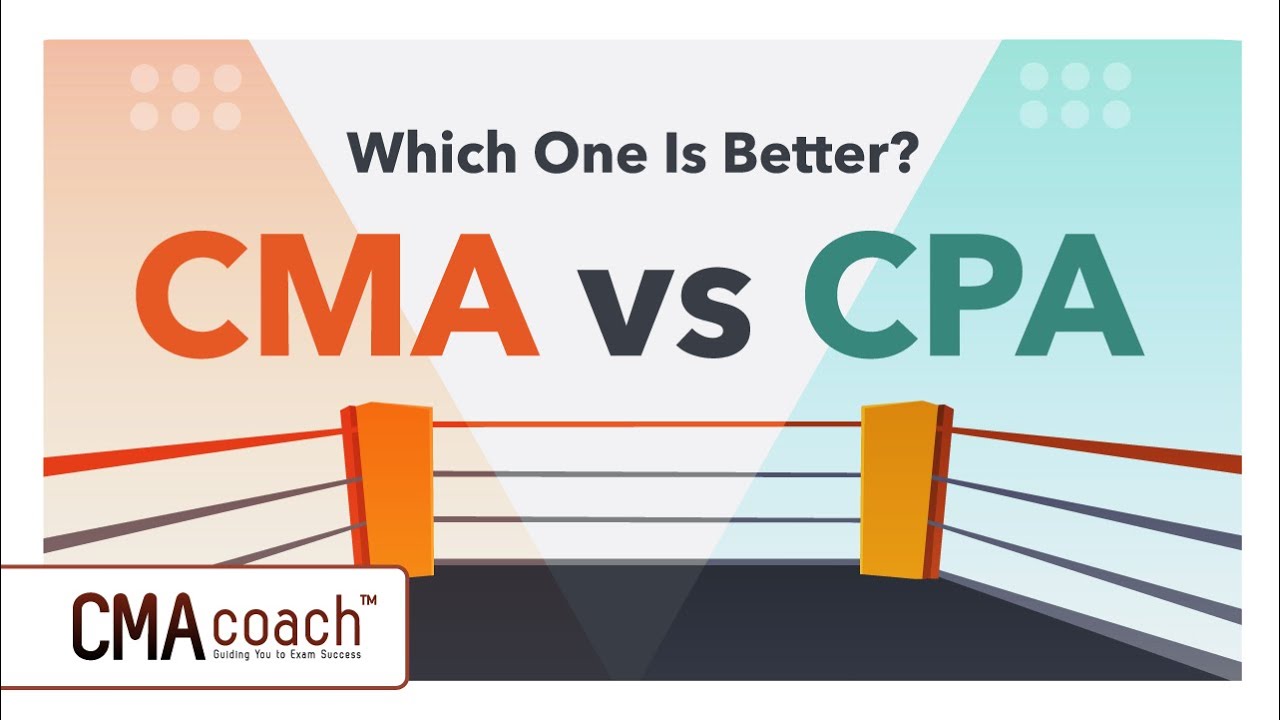In today's competitive job market, it is essential to have the necessary skills and qualifications to stand out from the crowd, what is Certified Management Accountant? The Certified Management Accountant (CMA) certification is one such qualification that is highly regarded in the field of management accounting. A CMA designation indicates that an individual has the necessary skills and knowledge to excel in their profession and is recognized globally.
What Is A Certified Management Accountant?

Certified Management Accountant: An Overview
Certified Management Accountant (CMA) is a professional certification in management accounting offered by the Institute of Management Accountants (IMA) in the United States. The CMA certification is globally recognized and provides professionals with the necessary skills and knowledge to excel in the field of management accounting.
A CMA is responsible for providing financial analysis and reporting services to management teams, analyzing financial data to identify trends, and making recommendations to improve businessperformance. They may also be involved in budgeting and forecasting, risk management, and internal auditing. Obtaining a CMA certification can lead to increased earning potential, careeradvancement opportunities, global recognition, and continuing education.
Why Get A CMA Certification?
There are several reasons why getting a Certified Management Accountant (CMA) certification can be beneficial, including:
- Increased earning potential -According to the Institute of Management Accountants, CMAs earn on average 31% more than non-certified professionals in the same field.
- Career advancement opportunities -The CMA certification demonstrates to employers that an individual has the necessary skills and knowledge to take on more senior roles within an organization.
- Global recognition -The CMA certification is recognized worldwide, providing professionals with opportunities to work in various countries and industries.
- Continuing education -Certified Management Accountants are required to complete continuing education requirements to maintain their certification, ensuring that they stay up-to-date on the latest developments in the field.
- Specialized knowledge -The CMA certification provides professionals with specialized knowledge in the areas of financial planning, analysis, control, and decision support.
What Do Certified Management Accountants Do?
Certified Management Accountants (CMAs) play a crucial role in organizations by providing financial analysis and reporting services to management teams. They use their skills and knowledge to analyze financial data, identify trends, and make recommendations to improve businessperformance. Some of the key tasks performed by CMAs include:
- Financial planning and analysis -CMAs use their knowledge of financial data and performance to create and analyze financial plans and forecasts to help organizations make strategic decisions.
- Budgeting and forecasting -CMAs work with management teams to develop budgets and forecasts to ensure that an organization's financial resources are used efficiently.
- Risk management -CMAs identify potential financial risks and develop strategies to mitigate them, helping organizations avoid financial losses.
- Internal auditing -CMAs perform internal audits to ensure that financial controls and procedures are being followed, and make recommendations to improve the organization's financial management.
- Decision support -CMAs provide financial analysis and insights to help management teams make informed decisions about the organization's future.
Where Do Certified Management Accountants Work?
Certified Management Accountants (CMAs) work in a variety of industries and organizations, including:
- Corporate sector -Many CMAs work in the corporate sector, providing financial analysis and support to management teams in large organizations.
- Financial services -CMAs may work in financial services firms, including banks, investment firms, and insurance companies, providing financial analysis and reporting services.
- Consultingn -Some CMAs work in consulting firms, providing financial analysis and advice to clients in various industries.
- Government and non-profit organizations -CMAs may work in government agencies or non-profit organizations, providing financial analysis and support to ensure that resources are being used efficiently.
- Education -Some CMAs work in academia, teaching courses in accounting and financial management.
What Does The CMA Exam Cover?

Certified Management Accountant (CMA) Exam - WHAT YOU MUST KNOW
The Certified Management Accountant (CMA) exam is a comprehensive exam that covers a wide range of topics related to management accounting. The exam consists of two parts:
Part 1: Financial Reporting, Planning, Performance, And Control
This part of the exam covers the following topics:
- External financial reporting decisions
- Planning, budgeting, and forecasting
- Performance management
- Cost management
- Internal controls
Part 2: Financial Decision Making
This part of the exam covers the following topics:
- Financial statement analysis
- Corporate finance
- Decision analysis
- Risk management
- Investment decisions
The CMA exam is designed to test candidates' knowledge and skills in the areas of financial planning, analysis, control, and decision support. The exam is computer-based and consists of multiple-choice questions and essayquestions. Candidates have four hours to complete each part of the exam. To pass the CMA exam, candidates must achieve a minimum score of 360 out of 500 on each part of the exam.
How Do You Register For The CMA Exam?
To register for the Certified Management Accountant (CMA) exam, follow these steps:
- Join the Institute of Management Accountants (IMA) -To be eligible to take the CMA exam, you must be a member of the IMA. You can join the IMA by visiting their website and completing the online membership application.
- Complete the education requirements -To be eligible to take the CMA exam, you must meet the education requirements set by the IMA. This includes a bachelor's degree from an accredited college or university and completion of certain accounting and business courses.
- Apply for the exam -Once you have joined the IMA and met the education requirements, you can apply for the CMA exam by submitting an application online. You will need to provide information about your education and work experience, as well as pay the exam fee.
- Receive approval -Once your application is approved, you will receive an authorization to test (ATT) letter from the IMA, which will provide instructions on how toschedule your exam.
- Schedule the exam -Using the instructions provided in your ATT letter, schedule your exam at a Prometric testing center. You can choose a date and time that works best for you.
How To Become A Certified Management Accountant?
To become a Certified Management Accountant (CMA), you must follow these steps:
- Meet the education requirements -To be eligible to take the CMA exam, you must have a bachelor's degree from an accredited college or university and have completed certain accounting and business courses. You can check the IMA website for specific education requirements.
- Join the Institute of Management Accountants (IMA) -Once you have met the education requirements, you must join the IMA as a member to be eligible to take the CMA exam.
- Pass the CMA exam -The CMA exam consists of two parts and covers topics related to financial planning, analysis, control, and decision support. To become a CMA, you must pass both parts of the exam.
- Gain the required work experience -In addition to passing the exam, you must have two years of professional experience in management accounting or financial management. This experience can be gained before or after passing the exam.
- Apply for certification -Once you have met the education, exam, and experience requirements, you can apply for certification by submitting an application to the IMA. The application includes information about your education, exam scores, and work experience.
- Maintain certification -To maintain your CMA certification, you must complete continuing education requirements and pay annual dues to the IMA.
What Is CMA Salary?

CMA Salary 2024 - Discover Your Potential as a Certified Management Accountant
The salary for a Certified Management Accountant (CMA) can vary depending on a number of factors such as location, industry, and years of experience. According to the Institute of Management Accountants (IMA), CMAs in the United States have a median total compensation of $109,000 per year, which includes base salary, bonuses, and other forms of compensation.
The IMA also reports that CMAs who have less than two years of experience typically earn a median salary of around $66,000 per year, while those with more than 20 years of experience can earn a median salary of over $150,000 per year.
In addition, factors such as job title, company size, and geographic location can impact a CMA's salary. For example, CMAs working in larger companies may earn higher salaries than those working in smaller companies, and those working in certain industries, such as finance or healthcare, may earn higher salaries as well.
Overall, the salary for a CMA can vary depending on a number of factors, but CMAs tend to earn competitive salaries compared to other accounting and finance professionals.
CMA Vs. CPA Designations

CMA vs CPA - Which One Is Better?
The CMA (Certified Management Accountant) and CPA (Certified Public Accountant) are both professional designations in the accounting and finance field, but they have some key differences:
- Focus -The CMA designation focuses on management accounting, which includes financial planning, analysis, control, and decision-making, while the CPA designation focuses on public accounting, which includes auditing, taxation, and accounting services for individuals, businesses, and governments.
- Education -To become a CMA, you must have a bachelor's degree and meet specific education requirements related to accounting and business. To become a CPA, you must have a bachelor's degree and complete additional coursework in accounting, taxation, and auditing, typically totaling 150 credit hours.
- Exam -The CMA exam consists of two parts and covers topics related to management accounting. The CPA exam consists of four parts and covers topics related to accounting, auditing, taxation, and business law.
- Experience To become a CMA, you must have two years of professional experience in management accounting or financial management. To become a CPA, you must meet specific experience requirements, which can vary by state, but typically involve working under the supervision of a licensed CPA.
- Licensing - The CMA designation is not a license to practice accounting, while the CPA designation is a license granted by state boards of accountancy. This means that a CPA can provide certain accounting services, such as auditing and tax preparation, that a CMA cannot.
The CMA and CPA designations are both valuable in the accounting and finance field, but they have different focuses, education requirements, exams, experience requirements, and licensing. Which designation is best for you will depend on your career goals and interests.
What Are The Qualities Of A Management Accountant?
Management accountants require a unique set of qualities that allow them to excel in their profession. Here are some of the qualities that are typically found in successful management accountants:
- Analytical skills -Management accountants must be able to analyze financial information and data to provide valuable insights to their organizations.
- Communication skills -They must be able to communicate financial information to people at all levels of an organization in a clear and concise manner.
- Attention to detail -Management accountants must be detail-oriented and able to ensure accuracy in financial reporting.
- Ethical behavior -They must adhere to high ethical standards and maintain confidentiality in handling financial information.
- Strategic thinking -They must be able to think strategically and provide recommendations that align with the organization's goals and objectives.
- Technology skills -They must be comfortable with using financial software and technology to manage and analyze financial data.
- Continuous learning -They must be committed to continuous learning and staying up-to-date with changes in accounting and financial regulations.
- Collaboration skills -They must be able to work collaboratively with other departments and stakeholders to achieve organizational goals.
People Also Ask
How Long Does It Take To Become A CMA?
The process of becoming a CMA typically takes two to three years. This includes completing the educational and work experience requirements and passing the two-part CMA exam.
What Jobs Can You Get With A CMA Certification?
Jobs that are typically associated with a CMA certification include financial analyst, cost accountant, internal auditor, controller, and financial manager.
What Is The CMA Exam Like?
The CMA exam consists of two parts, each with 100 multiple-choice questions and two essay questions. The exam covers topics such as financial reporting, planning, performance, and control.
What Is The Value Of A CMA Certification?
The CMA certification can provide several benefits, including increased earning potential, career advancement opportunities, global recognition, and continuing education.
Conclusion
The Certified Management Accountant (CMA) certification is a valuable qualification for individuals looking to advance their careers in the field of management accounting. The certification provides professionals with the necessary skills and knowledge to excel in their profession, and it is globally recognized.
By obtaining the CMA designation, individuals can increase their earning potential, access career advancement opportunities, and stay up-to-date with the latest developments in the field. If you are interested in pursuing a career in management accounting, obtaining the CMA certification is a step in the right direction.
